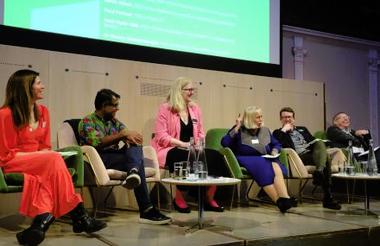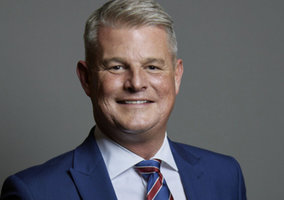Charity leaders are operating in the “most uncertain and challenging time”, with some facing burnout and leaving the sector, an event heard yesterday.
Sarah Elliott, chief executive of umbrella body NCVO, said in London that the spring statement’s “devastating welfare reforms” had added further pressure in the aftermath of the Covid-19 pandemic and the cost-of-living crisis.
This is also on top of charities having to pay increased national insurance contributions from next week and seeing their incomes decline, she told law firm Stone King’s event on leading in uncertain times.
Elliott said the pressures had led to leaders being burnt out and eventually leaving the sector, she said, with more junior staff not wanting to step up because they have seen the hectic workload of their CEOs.
Danny Sriskandarajah, former chief executive of Oxfam GB and now CEO of New Economics Foundation, said: “It certainly feels like the most uncertain and challenging time to be a leader now in the sector.”
Sriskandarajah said charities were having to compete with each other more for both local contracts and international aid pots, two of the most important sources of income for the sector.
Stronger partnerships with other sectors
Elliott said at the event that charities have replaced the state in providing services to the public.
She said: “These days, increasingly, charities are replacing the state in delivering services, and for those in society who are falling through the ever restrictive gaps, charities have become the safety net.”
Julia Cleverdon, chair of the National Lottery Community Fund, said that as a sector, charities should look into partnerships with the private sector since the government will be restricted in its spending “for a long time”.
Matt Hyde, CEO of the Lloyds Bank Foundation, said the sector needs to leverage people in other sectors.
Hyde said: “That means we’re going to have to learn new languages, spend time together in different sectors and listen to each other.”
Paul Farmer, CEO of Age UK, agreed and said that there is “an awful lot of wealth” in this country that the sector has not tapped into in the right way.
Farmer said: “Partly because we’re not telling our story correctly, but partly because I think there is a new resetting required of what we mean by a genuinely civil society.
“And a genuinely civil society recognises that we all have a role to play in contributing into that society.”
Importance of mentoring
Farmer told the event that every person who is in a leadership position at a charity should mentor somebody, and this is especially beneficial when done with people outside the sector.
“That's how you build the long-term bonds of creative relationships between public, private and the voluntary sector,” he said.
Farmer said there was a need for larger organisations like his to support smaller charities through collaborations and to support the ecosystem of the charity sector.
Related articles












